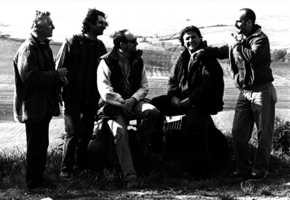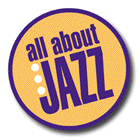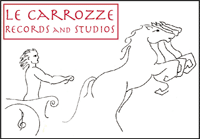-
|
reinterpreted the music of Kurt Weill-style jazz group "Il volo di Lindberg"
-
-
-
- Il volo di Lindbergh
-
- Raffaele Brancati sax, flauto
- Mariano Di Nunzio tromba, flicorno
- Sergio Corbini pianoforte
- Amedeo Ronga contrabbasso
- Daniele Fusi batteria
-
- 1) Bilbao song (from Happy end)
- 2) Alabama song (from Mahagonny)
- 3) Prologué (from The seven deadly sins)
- 4) My ship
- 5) Surabaya Johnny (from Happy end)
- 6) Je ne t'aime pas
- 7) Speak low
|
- Il volo di Lindbergh. Within the diverse plant composition that characterizes the music of Weill was conceived even Lindbergh's flight, the title of which, not coincidentally, was chosen today to call, in a single symbol, a band and a disc that offers the revisiting the music of Weill through elaboration of his original themes, arranged on the uncertain boundary line that marks (not dividing) the European art music from jazz.
Today's Flight of Lindbergh is thus a refined cultural operation Weill going to return a not so "distorted", but rather, "Transfiguration" by adopting a syntax diagrams jazz, but the citation does not disdain worship, the language " high "in some twentieth-century music. The themes of Weill dilate, thus, to musically evoke atmosphere, spaces and sounds created in the continuous alternation of the "serious-cantabile" with svisatura, with the rhythmic contraction playful, humorous, even irreverent.
As shock memory, we recognize those issues initially crude and disconsolate, born as songs for a theater of words often bare, prosaic, disturbing the cage the whole dialectic short, what was, in fact, the Brechtian dialectic ... And with the effect of distance working memory, and thanks to the creativity of musicians of the Lindbergh flight, such issues, as today, they seem to buy more universal, they are even more symbolic. A musical work, then, that, with intelligence and sensitivity, almost reproposed - at the turn of the century and on the basis of a European musical knowledge that this same century has produced - the issues (not just music) and the characters "typical" created by coupled happy Brecht-Weill.
In short, this Lindbergh flies very high.
|



Fondazione Siena Jazz

Musica Reale
|

|








